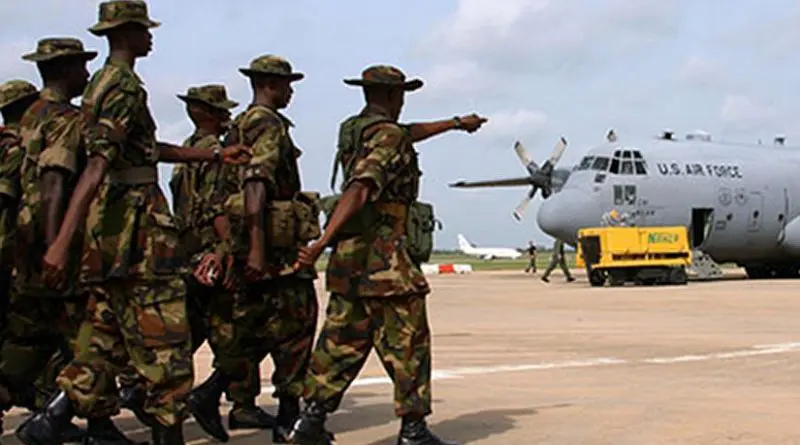Nigerian Soldiers Accused Of Raping Boko Haram Victims
By IDN
Dozens of young girls, rescued from Boko Haram kidnappers, were made victims again by the Nigerian soldiers and policemen assigned to protect them, according to accounts documented by investigators for Human Rights Watch.
The New York-based rights group found forty-three cases of “sexual abuse, including rape and exploitation.” Four victims told HRW they were drugged and raped. Thirty-seven said they had been coerced into sex through false marriage promises and material and financial assistance.
“It is bad enough that these women and girls are not getting much-needed support for the horrific trauma they suffered at the hands of Boko Haram,” said Mausi Segun, senior Nigeria researcher at Human Rights Watch. “It is disgraceful and outrageous that people who should protect these women and girls are attacking and abusing them.”
Victims of rape and sexual exploitation may be less likely to seek health care, including psychological counselling, due to the shame they feel, said HRW. Fewer than five of the 43 women and girls reported receiving any formal counseling after they were sexually abused.
President Muhammadu Buhari, upon learning of the girls’ allegations, said he was “worried and shocked” and ordered police to “immediately commence investigations into the issue”.
“The welfare of these most vulnerable of Nigerian citizens has been a priority of his government,” presidency spokesman Garba Shehu said, adding that the allegations raised by the HRW “are not being taken lightly”.
Human Rights Watch said it wrote to several Nigerian authorities in August requesting comment on the research findings. The minister of women affairs, Aisha Jumai Alhassan, promised in a meeting with Human Rights Watch to investigate the allegations and then respond.
In October, hundreds of people displaced by Boko Haram militants held a protest in Maiduguri, accusing officials of stealing food rations after photos were seen on social media showing food with aid agency logos being sold in shops. A spokesman for the governor disputed the charges, saying: “It is radically difficult to divert food.”
In a separate matter, the United Nations Children Fund (UNICEF) announced they have secured the release of 876 children held by Nigeria’s army and security forces.
The army routinely detains civilians who have been living in areas once ruled by the insurgents on suspicion they might be linked to militant activities. However, rights groups say there is no proper legal process for children, since they do not get formally charged and some end up in so-called rehabilitation centres, which the groups say are like prisons.

